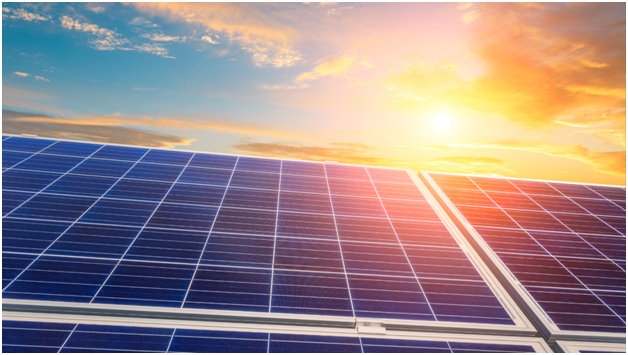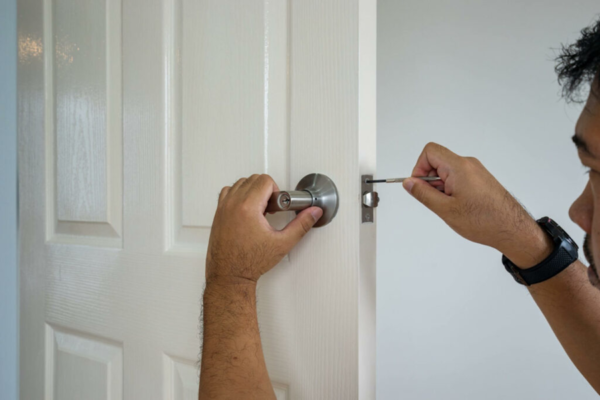Energy prices are on the rise, and homeowners across the country are feeling the pinch. As utility rates climb due to inflation, infrastructure upgrades, and increased demand, many are searching for long-term solutions to reduce their electricity bills. One of the most effective ways to take control of your energy expenses is by harnessing the power of the sun.
Solar energy offers not only environmental benefits but also serious financial advantages. Here are six ways solar energy helps you beat rising utility costs—today and for decades to come.
1. Lock In Lower Energy Costs
When you install solar panels, you’re essentially prepaying for decades of electricity at a much lower fixed rate. Unlike utility companies, which can raise rates without warning, solar energy provides a consistent source of power with little to no variability in cost once the system is installed. Over time, this price stability becomes more valuable as traditional energy rates continue to rise.
Homeowners who go solar often see significant savings over 20 to 30 years—sometimes tens of thousands of dollars in avoided utility charges. By reducing your reliance on the grid, you protect yourself from future rate hikes and seasonal spikes.
2. Reduce or Eliminate Monthly Electric Bills
Depending on your home’s energy usage and the size of your solar system, you could significantly reduce or even eliminate your monthly electricity bill. During sunny months, your panels may generate more power than you use. With net metering programs (available in many areas), you can send excess energy back to the grid in exchange for credits. These credits help offset your usage during lower-production times, such as at night or on cloudy days.
Over a year, this can balance out to minimal or zero utility costs—an attractive prospect for any budget-conscious homeowner.
3. Offset Time-of-Use Rates
Some utility companies charge more for electricity during peak hours, such as late afternoon and early evening. These time-of-use (TOU) rates can make your energy bill unpredictable and expensive, especially in the summer months when air conditioning use spikes.
Solar systems, especially when paired with battery storage, can help offset TOU pricing. Your solar panels generate energy during the day when the sun is strongest—right when TOU rates often begin to increase. That energy can be used immediately or stored for use later, helping you avoid paying premium prices for electricity.
4. Benefit from State and Federal Incentives
Although this doesn’t directly reduce your monthly utility bill, taking advantage of financial incentives can lower the overall cost of your solar system and help you achieve energy savings faster. The federal solar tax credit allows you to deduct a percentage of your system’s cost from your federal taxes. Many states and local utilities also offer rebates, grants, and performance-based incentives.
These programs can significantly reduce your out-of-pocket expenses for solar panel installation, allowing you to reach your break-even point sooner and start enjoying net savings more quickly.
5. Increase Energy Efficiency with Smarter Usage
Homeowners who invest in solar often become more energy-conscious overall. Many solar systems include monitoring tools that show real-time usage and generation data. This insight helps you better understand how and when your home uses electricity, enabling you to make smarter decisions—like running appliances during peak sunlight hours or reducing standby energy waste.
This behavioral shift, combined with solar production, amplifies your energy savings and makes you less vulnerable to price fluctuations from your utility provider.
6. Build Long-Term Value Through Home Equity
While this may not seem like a direct impact on your utility costs, installing solar panels can increase the value of your home. Buyers recognize the benefit of reduced or eliminated electric bills, and homes with solar often sell faster and at higher prices. This added value helps offset future energy expenses by giving you greater financial flexibility, whether you stay in your home or decide to sell.
In fact, studies have shown that solar-equipped homes can sell for thousands more than comparable homes without solar—making it a smart investment that pays off both monthly and long-term.
With energy prices showing no signs of slowing down, solar energy is an increasingly practical solution for homeowners who want control, predictability, and savings. From locking in fixed rates to taking advantage of incentives and reducing day-to-day costs, solar empowers you to beat rising utility bills with clean, renewable power.
If you’re exploring energy solutions that pay off over time, consider solar panel installation not just as a home upgrade, but as a long-term financial strategy.


 How to Get Rid of Musty Odours in Your Basement
How to Get Rid of Musty Odours in Your Basement  Roofing Repair in Harrisburg: Protecting Homes Through Quality and Care
Roofing Repair in Harrisburg: Protecting Homes Through Quality and Care  Restoring Strength and Safety with Expert Concrete Repair in Marion
Restoring Strength and Safety with Expert Concrete Repair in Marion  Locked Out? How Total Security Locksmith Handles Emergency Lockout and House Lock Services with Ease
Locked Out? How Total Security Locksmith Handles Emergency Lockout and House Lock Services with Ease  How Takara Standard Kitchens in Singapore Evolve With Every Milestone
How Takara Standard Kitchens in Singapore Evolve With Every Milestone  The Hidden Benefits of Serviced Apartments for Rent in Singapore
The Hidden Benefits of Serviced Apartments for Rent in Singapore  Top 5 Benefits of Installing Roller Blinds in Singapore Homes
Top 5 Benefits of Installing Roller Blinds in Singapore Homes  DIY Log Cabin Christmas Decorations on a Budget
DIY Log Cabin Christmas Decorations on a Budget  Why Homeowners Choose LUKA Design and Build for Timeless Architecture and Modern Function
Why Homeowners Choose LUKA Design and Build for Timeless Architecture and Modern Function 







